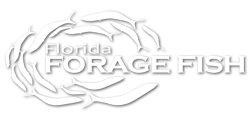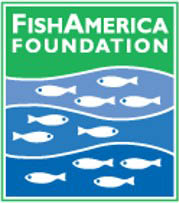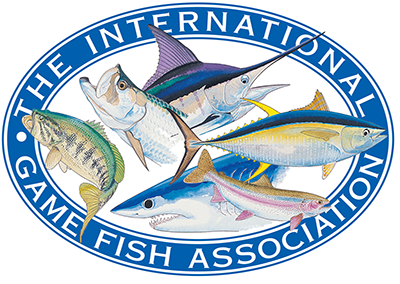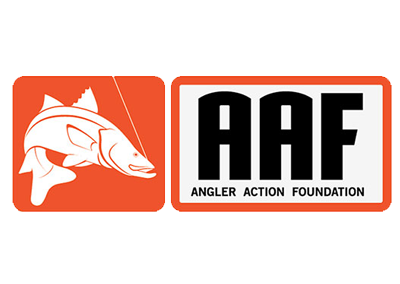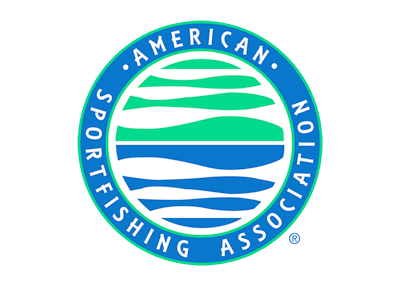The FishAmerica Foundation is the American Sportfishing Association’s conservation and research foundation. We unite the sportfishing industry with conservation groups, government natural resource agencies, corporations and foundations to invest in sportfish and habitat conservation and research across the country.
FISH FLORIDA, a 501(c)(3) non-profit organization, supports organizations that teach people, especially children, about Florida’s fish and aquatic habitats through donations of fishing equipment, grants, and scholarships.
The mission of Fish Florida is to promote public awareness of and encourage the protection of marine fisheries and coastal habitats. This is accomplished through clinics, classes, seminars, presentations, displays and other means designed to teach and promote responsible angling, particularly to Florida’s youth.
When you buy a Grady-White boat you aren’t just purchasing the most exceptional boat on the market, you’re becoming part of the family of Grady owners! We’re a welcoming group who together enjoy a variety of activities from fishing tournaments, seminars and customer appreciation parties to raft ups, and overnight or day trips. First time boat owners will enjoy traveling with seasoned Grady owners where you’ll discover all the best places to enjoy your favorite boating activity. The best part is the camaraderie you’ll derive from Grady ownership. So, climb aboard The Grady Life and experience the best boating lifestyle.
the
need
Forage fish help make Florida the Fishing Capital of the World
The Florida Fish and Wildlife Conservation does an excellent job of managing Florida’s fisheries. Properly managing forage fish will ensure that Florida maintains its rich fishing legacy.
Florida is the undisputed Fishing Capital of the World1, and for good reason:
- More International Game Fish Association records have come from Florida than any other U.S. state or country.2
- Florida boasts over three million resident anglers and over one million non-resident anglers annually—more than any other state.
- Saltwater recreational fishing in Florida has a total economic impact of 7.6 billion dollars annually—more than any other state.
- Florida’s saltwater commercial fisheries provide tens of millions of pounds of fresh seafood to Florida and beyond.
Florida’s popular game fish rely heavily on forage fish
- More than 40% of a snook’s diet consists of forage fish such as pinfish, anchovies, mullet and others. The prey heavily on 5-7 cm pinfish during the summer when their abundance is highest.
- Redfish diet consists of approximately 34% forage fish.
- Nearly 80% of juvenile tarpon diet is forage fish likes mosquito fish, mumichog and mollies.
- Roughly 30% of what sailfish feed on are forage fish.
- Gag grouper diet consists of roughly 45% pinfish in the winter and approximately 25% in the summer.
Why are forage fish vulnerable?
Forage fish experience natural variations in abundance due to environmental conditions. They also school together in large numbers, which make them easy to target and catch. These stressors make forage fish vulnerable to commercial over-exploitation and collapse. Forage fish collapses have been observed a number of times in recent history:
- California sardine- 1950s
- Peruvian anchoveta- 1970s
- Namibian sardine- 1970s
- Japanese sardine- 1990s
New data exists on the importance of forage fish to other predators3
- Of all the ecosystems studied in the Lenfest Forage Fish Task Force report, 75% had at least one predator whose diet consisted of 50% or more of forage fish. 29% of ecosystems studied had at least one predator whose diet consisted of 75% or more of forage fish.
- Globally, the direct value of commercially harvested forage fish is approximately $5.6 billion dollars, annually. However, the supportive value of forage fish is $11.3 billion. In other words, forage fish have a higher economic value when left in the water as forage for larger predators. We have no idea how large the impact is on recreationally important species, especially in states like Florida that have extensive recreational fisheries.
1 Southwick Associates. Sportfishing in America: An Economic Force for Conservation. Produced for the American Sportfishing Association (ASA) under a U.S. Fish and Wildlife Service (USFWS) Sport Fish Restoration grant (F12AP00137, VA M-26-R) awarded by the Association of Fish and Wildlife Agencies (AFWA), 2012.
2 International Game Fish Association World Record Database, 2013.
3 Pikitch, E., Boersma, P.D., Boyd, I.L., Conover, D.O., Cury, P., Essington, T., Heppell, S.S., Houde, E.D., Mangel, M., Pauly, D., Plagányi, É., Sainsbury, K., and Steneck, R.S. 2012. Little Fish, Big Impact: Managing a Crucial Link in Ocean Food Webs. Lenfest Ocean Program. Washington, DC. 108 pp.
- The global contribution of forage fish to marine fisheries and ecosystems
- Global Seabird Response to Forage Fish Depletion—One-Third for the Birds
- The Risks of Overfishing
- Red snapper feed on forage species including pinfish, scads, tomtates, and anchovies. In fact, anchovies make up 37% of the red snappers diet in open water.
- Stop-loss order for forage fish fisheries.
- Fishing amplifies forage fish population collapses.
Our mission is to keep the oceans wild to preserve fishing opportunities for the future. To do this, we bring conservation-minded fishermen and pro-fishing environmentalists together to promote a broad, ecosystems approach to fisheries management that reflects our expanding circle of concern for all marine life and the future of fishing.
FISH FLORIDA, a 501(c)(3) non-profit organization, supports organizations that teach people, especially children, about Florida’s fish and aquatic habitats through donations of fishing equipment, grants, and scholarships.
The mission of Fish Florida is to promote public awareness of and encourage the protection of marine fisheries and coastal habitats. This is accomplished through clinics, classes, seminars, presentations, displays and other means designed to teach and promote responsible angling, particularly to Florida’s youth.
Since 1936, the Florida Wildlife Federation (FWF) has united Floridians throughout the state who are determined to ensure that wildlife and our fragile environment have a voice. FWF believes that we must protect, restore and connect our remaining wildlife habitats in a rapidly developing state. We must address ongoing climate change and the spread of harmful exotic species, both plant and animal, that threaten our native species. Moreover, we must safeguard water quality and quantity as clean water is critically important to both humans and wildlife.
The Angler Action Foundation improves angler access, fisheries science and marine habitat through collaborative Research, Education and Conservation programs.
We support unbiased and responsible fishery and marine regulations and conservation, preservation, restoration, and enhancement of estuarine and coastal water habitats.
For more than 85 years, ASA has passionately represented the people, policies and ideas that help recreational fishing thrive. They give the industry and anglers a unified voice when emerging laws and policies could significantly affect sportfishing business and participation. ASA invests in long-term ventures to ensure the industry remains strong and prosperous, as well as safeguard and promote the enduring economic, conservation and social values of sportfishing in America.
TBEP is an intergovernmental partnership of Hillsborough, Manatee, Pasco and Pinellas counties; the cities of Tampa, St. Petersburg and Clearwater; the U.S. Environmental Protection Agency (EPA); the Southwest Florida Water Management District (SWFWMD); and the Florida Department of Environmental Protection (FDEP).
The FishAmerica Foundation is the American Sportfishing Association’s conservation and research foundation. We unite the sportfishing industry with conservation groups, government natural resource agencies, corporations and foundations to invest in sportfish and habitat conservation and research across the country.
FISH FLORIDA, a 501(c)(3) non-profit organization, supports organizations that teach people, especially children, about Florida’s fish and aquatic habitats through donations of fishing equipment, grants, and scholarships.
The mission of Fish Florida is to promote public awareness of and encourage the protection of marine fisheries and coastal habitats. This is accomplished through clinics, classes, seminars, presentations, displays and other means designed to teach and promote responsible angling, particularly to Florida’s youth.
When you buy a Grady-White boat you aren’t just purchasing the most exceptional boat on the market, you’re becoming part of the family of Grady owners! We’re a welcoming group who together enjoy a variety of activities from fishing tournaments, seminars and customer appreciation parties to raft ups, and overnight or day trips. First time boat owners will enjoy traveling with seasoned Grady owners where you’ll discover all the best places to enjoy your favorite boating activity. The best part is the camaraderie you’ll derive from Grady ownership. So, climb aboard The Grady Life and experience the best boating lifestyle.
